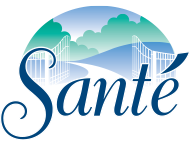Most people define addiction as a series of unwise choices that lead to the loss of jobs, families, and homes. But is this really an accurate depiction of what it means to live with a substance abuse problem? In fact, within the setting of detoxification and rehabilitation, professionals have a very different understanding. For example, did you know that addiction is a brain disease? It changes the way the brain functions, leading to physical and psychological dependence. It’s vital to seek addiction treatment programs if you’re suffering from an addiction to nearly any substance.
At Santé Center for Healing, we are committed to treating substance use disorders and a range of other conditions. Whether you’re suffering from an addiction to alcohol, a prescription medication, or an illicit substance, we can help. To learn more about our services, please contact our caring and compassionate team today at 866.238.3154.
When Substance Abuse Crosses the Line and Becomes Addiction
To be fair, it’s just as possible to have an addiction to sex and gambling as it is to drugs and alcohol. The majority of individuals who seek help for addiction do so because of a substance abuse problem that spun out of control. Therapists define addiction as a brain disease rather than a problem with impulse or self-control. When you consider that drugs affect the brain and rewire it in part, this explanation makes sense.
For example, substances that directly affect the dopamine release capabilities of the brain change its chemistry. The process is gradual, though. Someone might abuse a substance a few times before building a tolerance or forming an addiction. Before long, the brain won’t release dopamine without the influx of the drug. That’s why withdrawal is so painful, and relapse is so common.
It’s Possible to Define Addiction Against the Backdrop of Actions and Thoughts
What may spur an addiction in one person is a simple bad habit for another. One example of this is binge drinking. The practice itself is an example of substance abuse. However, it won’t cross the line to an actual alcohol use disorder for everyone.
Those who do develop dependencies find that there are commonalities in their experiences. For example, they crave alcohol and spend an extraordinary amount of time buying, using, and recovering from its effects. In spite of a desire to drink less, someone with an alcohol disorder drinks more to get the same effects. Hand in hand with the fulfillment of the craving come problems at home, work, or in school.
Is There a Cure for Addiction?
The dysfunction of the brain’s reward system and the manifestation of drug addiction can have a variety of causes. It’s not possible to cure the addiction. It is, however, possible to attain lifelong sobriety with the right addiction treatment program. At the Santé Center for Healing, we’ve identified various levels of care, including:
- Dual diagnosis treatment for program participants with diagnosed or previously undiagnosed psychological disorders
- Poly-addiction capabilities that meet you at your current state of substance abuse rather than focus on only one condition
- Focused therapy that includes trauma recovery, codependent relationships, and family dynamics
- Entry points that adapt to your needs rather than the precepts of an inflexible program
- Goal setting and treatment strategies that aim to help you recover for the long run well past the duration of your stay
If you’re suffering from an addiction, it’s vital to seek treatment as soon as possible. Doing so can change your life for the better.
Contact Santé Center for Healing Today
If you or a loved one recognizes familiar behavioral traits when reading the definitions of addiction, get help now. Regardless of how long the addiction has been going on, recovery is possible. We offer a range of holistic and evidence-based treatment options to address your condition, including:
- Cognitive-behavioral therapy
- Dialectical behavior therapy
- Yoga therapy
- Experiential therapy
- Family therapy
Don’t wait to get help for you or a loved one. Call us at 866.238.3154 today and start your recovery process.







